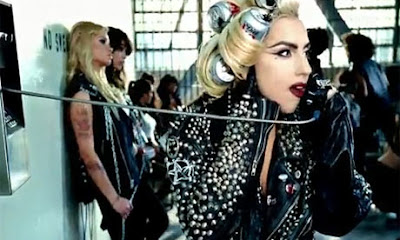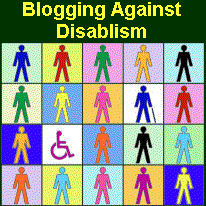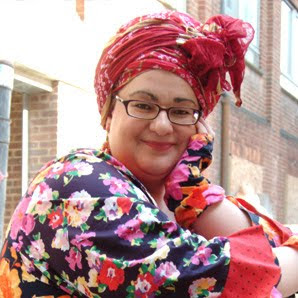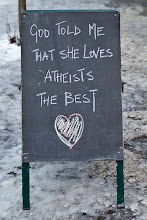
A number of things struck me about *that* video, not least that it does real people no favours whatsoever. Hyper sexualising women, female prisoners, female prison guards and crime, is a negative and dangerous discourse in popular culture which Gaga has capitalised on.
As the opening credits fade of Lady Gaga and Beyoncé's Telephone video, you quickly realise that this video is about oppressive sexual fantasy: hot, caged, prisoners with killer (literally?) heels, prison bars make convenient pole dancing substitutes, sexy guards, a brutal strip search… there’s something for every male gaze. Gaga cowers on the bed, and then responds like a caged animal climbing the bars and revealing all. When Papadopoulos recognises that sexual objectifying, pornographic images that eroticize violence against women, are mainstream she means mainstream. Gaga is at the peak of the music industry, recently scooping up 3 Brit awards, including best international female, and there is speculation that the Telephone video is the most important video of the year, the most important video ever, the heir to Michael Jackson's Thriller. Well, as you’ve probably deduced we’re not following the populist crowd here.
So what about those ‘real’ people? Real women inmates (like many male inmates) are often from socially deprived backgrounds with a catalogue of other problems. Violence against women of any background depicted as glamorous helps no one. Papadopoulos states:
Research has shown that adults – including women – who viewed sexually objectifying images of women in the mainstream media were more likely to be accepting of violence. The evidence gathered in the review suggests a clear link between consumption of sexualised images, a tendency to view women as objects and the acceptance of aggressive attitudes and behaviour as the norm. Both the images we consume and the way we consume them are lending credence to the idea that women are there to be used and that men are there to use them.
Real women do no look, dress or act like that. But surely I’m not stupid enough to think Gaga is even trying to depict real women or comment on the US penal system? No, I’m not, it’s art isn’t it, silly? I’m all for art, I even studied it once upon a time, but art which contributes to a normalization of pornographic images and objectifies women, needs to be rejected as such. Art, and Gaga’s bisexuality, can’t be used as a thin veil to excuse her depiction of exploitative violent sexuality.
In this video all Gaga’s offering is a parody of reality. It’s not girl power by any stretch of the imagination. Just because a woman is producing/performing it, saying she’s liberating female sexuality in the process, doesn’t make it liberating, and certainly does not make it feminist. Sorry Gaga, but you’ve added fuel to the popular fires of misogyny, in this video at least.
I wanted to focus my comments on the gendered aspects of the video, but I need to finally mention the mass murder. A deep contradiction at the heart of popular culture is the acceptance of a glorified depiction of a mass killing incorporated in a pop video (funny/colourful/sexy) and the public grief and outcry when one actually happens, “how could this happen? Who could do this?” (terrible/upsetting/heartbreaking). Those unstable enough to plan and perpetrate them are unstable enough to be encouraged and influenced by a pop video.










